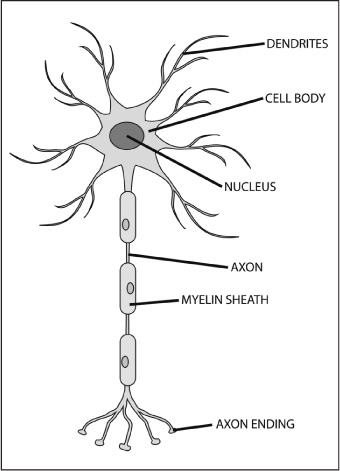Physiology: Animal Function and ReproductionNervous System |
How does the nervous system of invertebrates differ from that of vertebrates? |
The least complex nervous system is the nerve net of cnidarians—a network of neurons located throughout the radial symmetrical body of organisms such as hydras (animals that lack a head and a brain). The neurons are in contact with one another and with muscle fibers within epidermal cells. Invertebrates that display bilateral symmetry— such as planarians, annelids, and arthropods—all have a brain (a concentration of neurons at the anterior or head end), one or more nerve cords, and the presence of a central nervous system. In contrast, vertebrates all have a central nervous system and a peripheral nervous system.

The nerve cell is a specialized cell that is capable of relaying electrical signals from various parts of the body to the brain.
